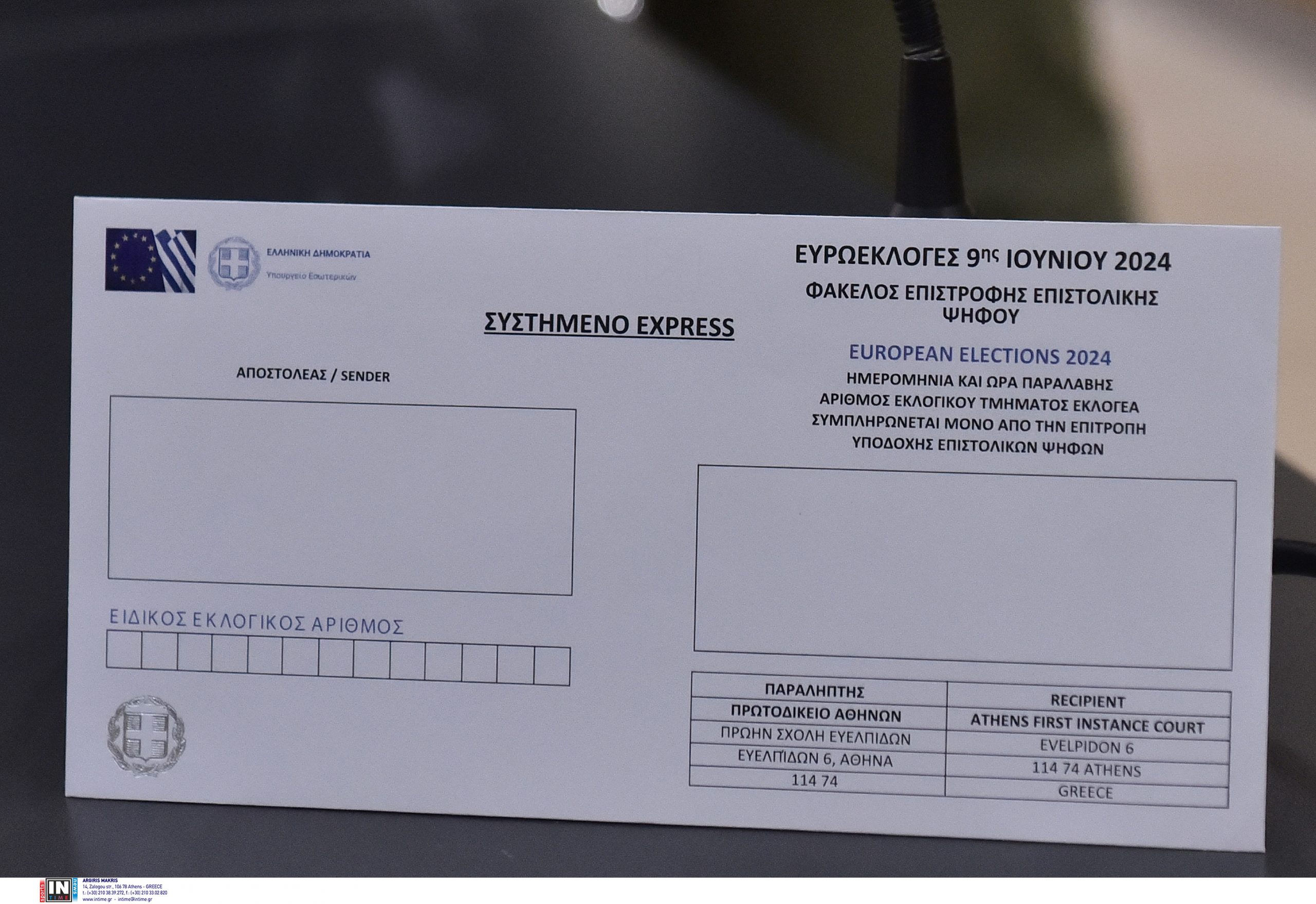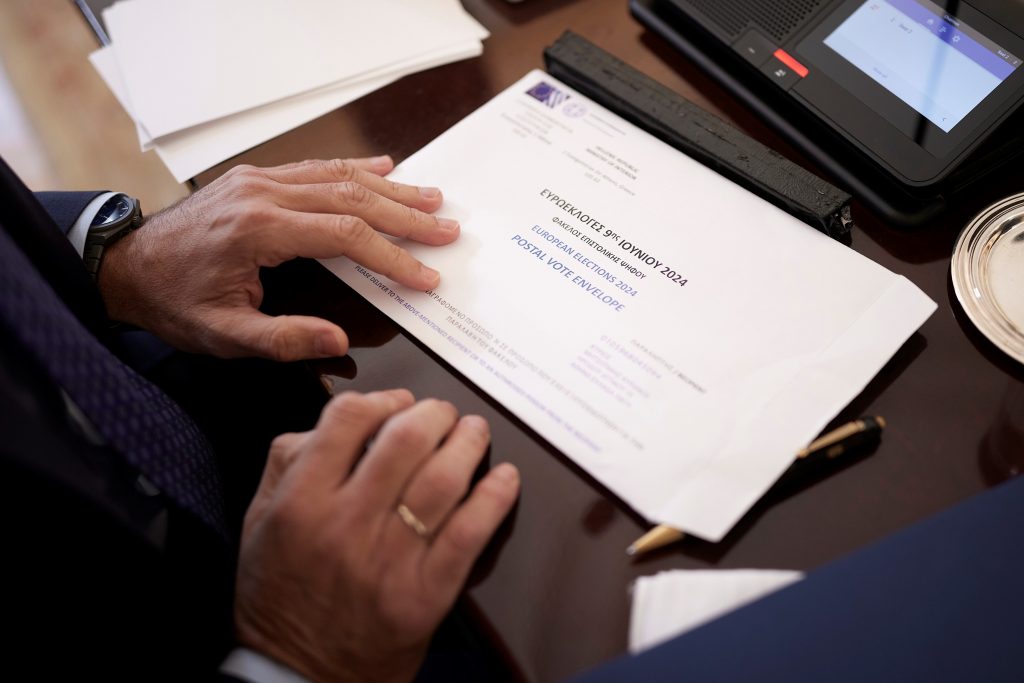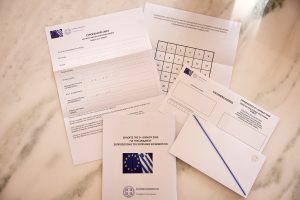After all, across the pond, postal voting has been available since the Civil War, which is to say for almost half the history of the United States. And it remains very popular to this day, with the number of postal votes cast doubling between the last two presidential elections.
A quick look at the new category of voters who will be joining the electorate for the European elections in 2024 makes it clear that we’re dealing with individuals who are familiar with this method of voting. That is because the vast majority of the Greeks in the US were born and raised there. But that raises the question of how many of them will be able to vote, given that many Greek-Americans maintain their links to their homeland but have not acquired Greek citizenship.
Of course, there are also the immigrants who were born in Greece but chose to move to America at some point in their lives. They can be divided into two groups. On the one hand, there are the older expatriates who have been living and working in the US for decades and acquired US citizenship along the way. On the other, there are the newer immigrants who left during the economic crisis and who are also starting to acquire citizenship and participate in American elections.
For the most part, both groups are Greek citizens, so we can assume that they are the ones whose participation in the European elections will determine whether the postal vote project is deemed a success.
The Difficulties facing the New Undertaking in the US
The Greek Embassy in Washington, along with the various consulates across the country, are ready to do everything in their power to support this new undertaking.
Speaking to To Vima, the new Greek ambassador, Katerina Nassika, spoke of a positive development that will further strengthen the bond connecting Greeks abroad to their mother land. “I think it will, in essence, make them feel closer to home. On behalf of the Greek Diplomatic Authorities in the United States, I can say that we will be ready to respond in the best possible way to this new era in our relationship.”
Nonetheless, given both the small size of our diplomatic staff and the fact that the US is a vast but also highly decentralized country, this will be a truly Herculean task. This reality is also recognized by old hands among the expatriate community who, as seasoned electoral campaigners themselves, know a thing or two about absentee voting can be employed.
One of these is Greek-American lobbyist Mike Manatos, who believes that implementing the postal vote is going to prove a challenge. “I don’t know what sort of numbers are involved, but I can’t imagine it will be easy to find all the Greek citizens who live outside Greece along with their postal addresses. Even if someone manages to get this information together, there are sure to be difficulties communicating and providing them with the information they need to vote.”
Greek-American lawyer Peter Choharis foresees similar difficulties. Having worked on John Kerry’s campaign, he knows the difficulties involved at first hand. As he explains, timing is key here, as the government needs to ensure the ballot papers reach the recipients on time, and that voters are aware of the deadlines.
For Choharis, this is an area that will require particular attention, as people tend to underestimate the time needed to return the ballot papers, which arrive late and are discounted as a result.
Postal Vote a New Bridge Connecting Diaspora to Greece
As leading members of the diaspora point out, the Greek-American community is an asset which gives Greece a degree of influence disproportionate to its size and actual power. But this “soft power” should not be taken for granted as it is sure to dwindle over time.
Most of the US diaspora are now fourth- or even fifth-generation Greek-Americans, and that is a statistic which can only raise concerns for the future. Mixed marriages, the declining use of the Greek language, and increasing integration into American society mean that the Greek part of their identity is coming to mean less and less for younger members of the community.
Still, the president of the American-Hellenic Institute (AHI), Nick Larigakis, sees grounds to be hopeful in the increasing interest Greek-Americans have shown in acquiring Greek citizenship. As he explains, postal voting, coupled with the acquisition of Greek passports, can help revitalize the fading ties connecting Greek-Americans to Greece.
“Greece is employing every means available to it, and that is the right thing to do. The provision of passports and citizenship is certainly helping, too. And this obviously encourages Greek-Americans to forge a new relationship with the Greeks and with Greece. All these people are definitely an asset for the mother country.”
Finally, in regards to the outcome of the postal vote project, Choharis believes that patience will be required. “It’s not going to work out right away. In fact, it probably won’t work the second or third time, either. But if we keep on trying, more and more people will start voting by post. It will take time to see results, but the government deserves praise simply for trying.”

A special envelope that will be used by eligible Greek citizens for postal voting in the June 9, 2024 European Parliament election.








